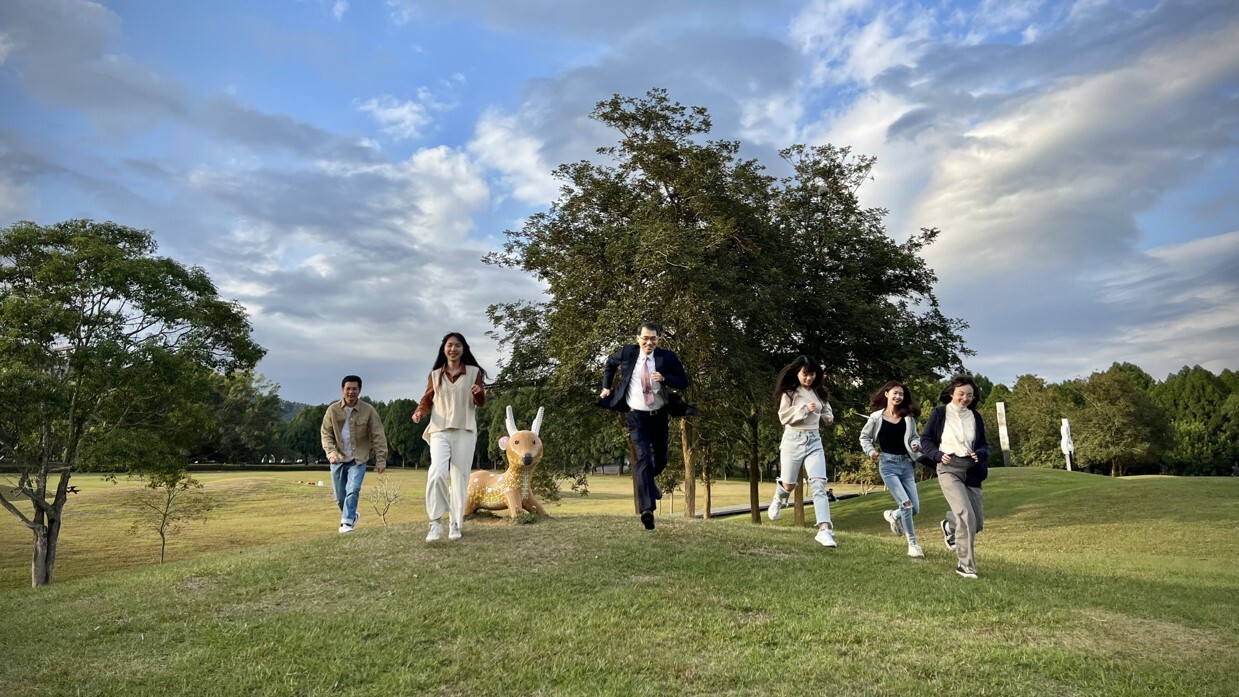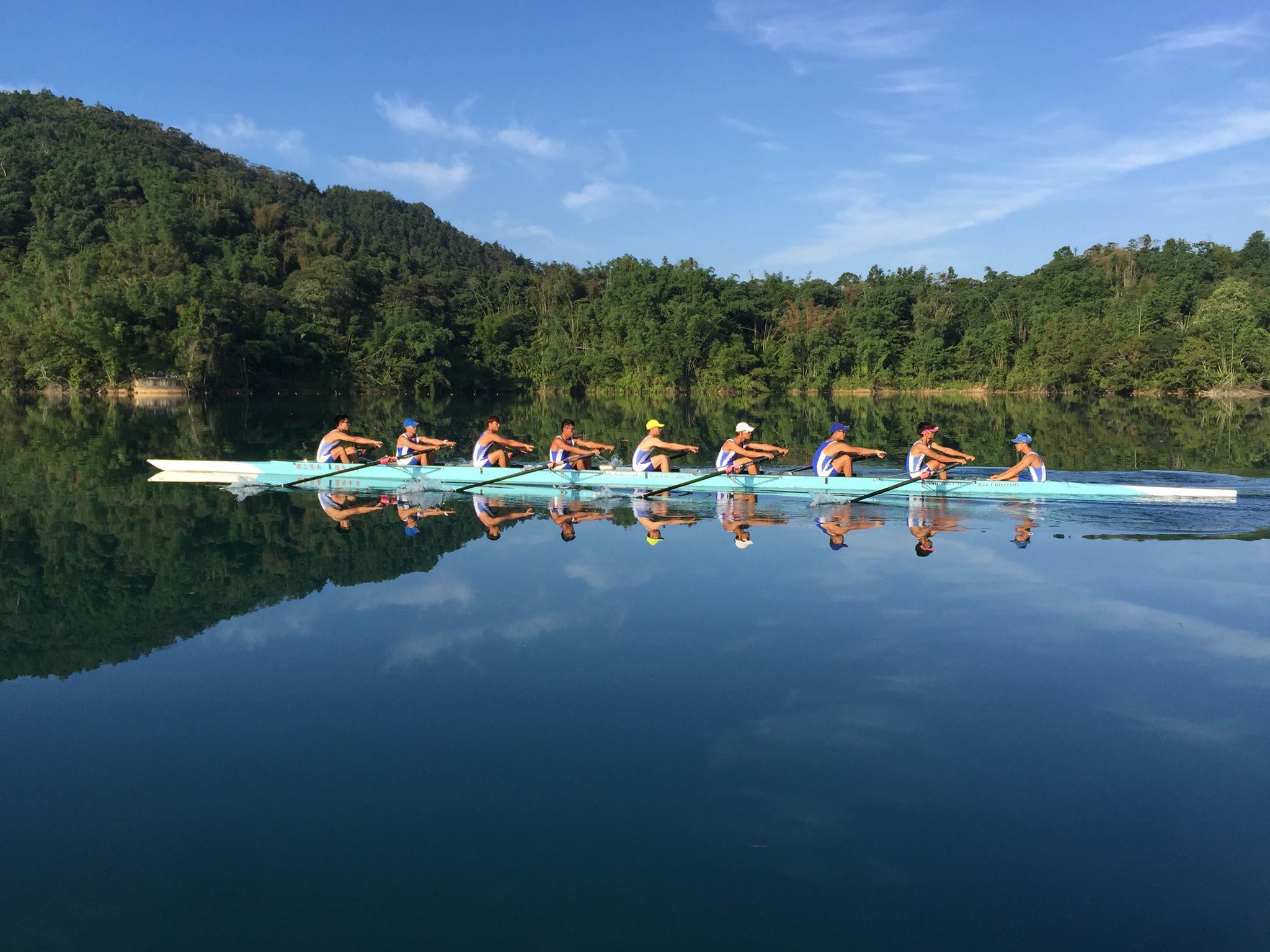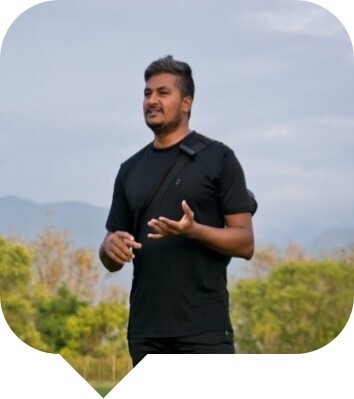Our Profile

Words from the President
I hope to establish a university that focuses on modernity and well-being. Whether teaching, research, or governance, I would ensure that the university can keep up with global trends and align with international standards. In addition, faculties and students can access abundant resources to explore novel ideas, innovate across regions, and connect with industries. The aim is to improve the well-being of human beings through the provision of cross-disciplinary knowledge, and through actions that enhance education and deeply cultivate assets that will transform the future society. I look forward to welcoming you to the university.
Dr. Dong-Sing Wuu, the 8th President of National Chi Nan University
Mission
Established in central Taiwan in 1995, we are tasked with both securing the inheritance of classical Chinese culture and cultivating a new generation of global-minded professionals. We currently have 5 colleges, 2 educational centers and 8 research centers. There are a total of 24 bachelor degree programs, 34 master degree programs, 9 in-service master programs and 13 PhD degree programs. An average of 6,500 students enroll each year to pursue degrees. After 27 years of operation, we now have a 20,000-strong alumni network that is putting down roots in different fields and regions across the world. 20 task units comprising nearly 700 faculty members are steadily transforming NCNU into central Taiwan's foremost cradle of humanistic, insightful, and passion-driven research and education.
Infuse distinctive local features: We conduct programs that address the unique needs of the local rural population, such as student-led community services, and tutoring programs for school children from remote townships. We also offer distinctive curricula that are synergetic with local economic activities, such as leisure and tourism, photo-electronics and the local industrial development.
Integrate humanities and technology: Through various interdisciplinary teaching programs, specialized courses and academic development projects, we encourage our students to embrace technology for the betterment of society, as well as humanistic enrichment that is in pace with technological advances.
Aggregate traditional and foreign education: Foreign students choose us thanks on the one hand to our traditional campus architecture and culture, and on the other hand to the efforts of the University Entrance Committee for Overseas Chinese Students, which is organized annually by us. As such, we have maintained the highest foreign-student ratio in the country.
Combine ecology and environment protection: Our campus is surrounded by a natural and ecological diversity. Thus, we have always valued and attached great importance to carbon reduction, and environmental education and conservation.
Features

Walking into the heart of Taiwan, and becoming synchronized with the global pulse
NCNU is located in Puli Township, Nantou County, the geographic center of Taiwan. Since the school’s establishment in 1995, the mission was to globalize higher education, integrate innovative teaching and research outcomes, and then use digital technology to connect with the global academic communities and collaborate with more than 100 foreign universities to create a strategy for global layout and dialogue.
NCNU's academic exchange network stimulates interdisciplinary sharing and collaboration, such as discussing the green economy and local creation issues with Japan's National Graduate Institute for Policy Studies and Niigata University, holding digital conferences on computer animation with Meiji University and Kansai University in Japan, and discussing post-disaster reconstruction with Shinshu University. NCNU has also participated in constructing water purification facilities in rural Cambodia and holds international education forums and seminars frequently to strengthen academic research.
The NCNU campus is full of local and international ambiance. The university guides students to go overseas for internships or pursue further studies. NCNU students’ footprints can be found at Carnegie Mellon University, Duke University, London School of Economics and Political Science, and the Delft University of Technology in the Netherlands, etc. The design of multifaceted teaching activities, language courses, Indonesian Gamelan musical instrument teaching, cultural and art exhibitions, international conferences, and international volunteering activities enrich and broaden the students’ global perspectives.
The uniqueness of the NCNU community is reflected in the governance of school affairs and cross-disciplinary teaching design. The university focuses on aligning with the United Nations’ Sustainable Development Goals, high-quality teaching, industrial innovation, infrastructure, inequality reduction, peace and justice, water and sanitation management, consumption, and production. NCNU’s efforts were recently recognized by the World University Rankings, demonstrating its commitment to sustainability.
“NCNU's Chinese language and literature course helped me improve my Chinese language skills tremendously, allowing me to fully integrate into the Chinese-only learning environment. Besides the beautiful scenery, NCNU also has beautiful and friendly people. The teachers and classmates are very kind to international students. When I encountered difficulties, they were willing to lend a helping hand. The university often arranges international students to visit rural schools for cultural exchanges and organizes many activities to help me get to know Taiwanese culture better.”—Hyakuai Nahao, Japan
“The topic of my thesis is the determinant of China’s direct investment in Russia – an empirical test. I came to NCNU to study because of the recommendation of a senior NCNU student from my hometown. My schoolmates took great care of me and helped me adapt to everything here quickly.”—Shmeleva Tatiana Olegovna (Шмелёва Татьяна), Russia
“The language courses in my department help me gain language skills for a second language. What is even more helpful is the diverse curriculum planning of the department, including an in-depth analysis of the political, economic, cultural, and social topics of Southeast Asian countries from the social science perspectives. The program develops students' ability to escape the established framework and think outside the box, which will help students' future careers and life planning.”—Hsin-Yen Ho, Taiwan
-
Connecting to the local vitality to drive innovation
NCNU invests in advanced research, promotes cross-disciplinary innovation in the humanities and technology, and converts academic research momentum into productivity and economic activities. Guided by the government strategic plans and financial support, the university cooperates with characteristic industries in central Taiwan in the fields of tourism, medicine, social work, energy, information and communication technology, education services, disaster prevention and response, smart agriculture, artificial intelligence, aerospace science, and business management.
Since the Jiji earthquake in 1999, NCNU has entered a new stage of local creation from community recovery, forming a support system consisting of community development associations, local farmers, and immigrant communities. The university facilitated the multi-level discussions of local needs and action plans and fully utilized students' entrepreneurship counseling resources, which effectively shortened the gap between learning and practice and improved students' capability to obtain certificates related to civil engineering, social work, psychological counseling, Chinese language teaching, and tourism and leisure.
At NCNU, the teaching plan is integrated with green energy, waste reduction, smart machinery, and other emerging technologies and connected with neighboring schools to develop green farm science curriculum modules and regularly promote the monitoring and evaluations of air, water, and soil quality; noise; and the ecology. The implementation of circular economy and resource recycling and the collaboration with local communities to campaign for carbon and plastic reduction establish examples of advocating and practicing social responsibility. NCNU’s effective environmental management system has received the ISO14001 environmental management certification.
"I was able to generate so many ideas, propose so many plans and concepts of social initiatives to change social values especially. To some extent, school education is very important. Although the theories learned from school may not be directly applied at work, they help explain the mode of operation in the workplace.”
—Li-Chan Lin, Cambodia
“When I was studying in the Department of Social Policy and Social Work, I began to consider the care needs of older adults in the community, encourage professionals to enter the community, and reverse the practice whereby older adults are admitted to medical institutions. The concept of transforming elderly care to lifelong care of daily living will bring added value to the relevant industries, which will in turn enhance young people’s employment opportunities and interests.”—Kai-Lin Liang, Taiwan
“The key element in public administration is communication. I admire the fact that NCNU has no fences. The campus is shared with the public, and residents can come to the campus to relax and tour. There were even discussions on how NCNU should connect with the public and create a ‘sense of belonging.’”—Hsin-Ke Yu, Taiwan
-
NCNU’s diversified and open-minded attitudes and values
Diversity and inclusion are the core characteristics of the NCNU community. The university has the highest proportion of international students in Taiwan and has attracted aboriginal youths from 16 tribes to come to study. Because the campus is located in an area where the Hakka, Minnan, and Pingpu ethnic groups reside, the Shuishalian region where rural areas and towns coexist is the best place to witness the soft power of Taiwan's culture.
When you come to NCNU, you can meet a group of indigenous young people who recognize their ethnic culture and care about the development of the tribal livelihoods. They are the best guides for learning about Taiwan's 55 tribal counties. Whether they choose to return to their tribes to start a business, build a network of social service resources, or engage in long-term care and cultural rejuvenation, they embrace the mission of moving the ethnic groups forward.
International students are bridges connecting various cultures. NCNU helps them get acclimated by mixing their housing assignments with those of local students, providing one-on-one life and study companions through the local students and arranging club activities, work-study, and internship opportunities. The Chinese language courses, English-taught courses, problem-oriented or social participation courses, and counseling resources allow international students to settle down physically and mentally, integrate into Taiwan's society, strive for the present, and dream about the future in a harmonious atmosphere of learning and sharing.
NCNU respects teachers and puts students first. Both the local and international students are guaranteed by the university system to have the right to participate actively in various school governance policy meetings. The university also provides diversified financial and learning support, like scaffolding, encouraging students to chase their dreams courageously and become open-minded global citizens.
“We are originally indigenous people who left the tribal counties. I want to set a milestone, calling on more young people to join us to promote root-seeking actions and return to the tribal areas for development. I am clear about my goals. From the moment I enrolled at NCNU, I registered in courses according to my personal goals. Most of the courses that I took are related to business or finance offered by the College of Management with a focus on corporate business planning. I constantly study to supplement relevant background knowledge.”—Kuo-Chun Kao, Taiwan
“The development of engineering technology or products cannot be accomplished by just one person alone; rather, it requires cooperation with people in different fields. This is especially true in the field of robotics because there are fewer people specializing in the robotics industry compared to other fields. My biggest gain from the NCNU exchange program at the Nanyang Technological University in Singapore was networking.”—Ken-Yuan Liu, Taiwan
-
Encountering the most authentic Taiwan, surrounded by green mountains and rivers
NCNU is close to Taiwan's famous tourist attractions, where well-designed stargazing, snow-viewing, lake-touring, forest-bathing, and cycling activities are available. For long-distance trips, enthusiasts can climb any of the 269 mountains over 3,000 meters high in Taiwan. NCNU is connected to major cities in Central Taiwan by a bus transit network and is the best starting point to explore Taiwan.
NCNU’s 66 clubs enrich the lives of international students. From sports and music to photography, the diverse activities keep students busy. During the academic school year, students can participate on cultural promotion teams. They can also study with foreign exchange teachers and students during winter and summer breaks. Students can maintain their physical fitness by taking advantage of softball, boating, and archery courses, as well as heated swimming pools, fitness and spa equipment, aerobics classrooms, comprehensive gymnasiums, and table tennis rooms.
The greater Puli area actively practices the "Slow Movement” initiative. The independent bookstores, exotic cuisines, and coffee and tea aromas around the town continue to attract immigrants. Two teaching hospitals, a variety of specialized clinics, and the on-campus outpatient clinic supported by the Puli Branch of the Taichung Veterans General Hospital provide family-style healthcare. The library has a rich collection of books and special collections related to featured research, allowing students to enjoy endless reading.
Nearly 90% of the 150-hectare NCNU campus is vegetation. The campus also has more than 12,000 trees of 113 species, such as Taiwan fir, where cherry blossoms, plum blossoms, and Osmanthus flowers grow and where frogs and butterflies reside. At NCNU, it is lovely to encounter more than a hundred species of butterflies, birds of prey hovering in the sky, more than a thousand cherry blossoms, and various special plants and species on campus.
“NCNU offers a panoramic view of nature, which I enjoy very much. NCNU has made it possible for me to pursue my PhD here, by offering me a good scholarship and alleviating my financial worries.”
—Lokesh Bettada, India
“I met a lot of really good people doing club activities, and that's definitely incredible. There is such a huge choice to do stuffs beside studies.”
—Tobias, Germany
“NCNU has beautiful scenery, a spacious campus, and open-minded faculty and staff with a broad vision. During the teaching, I learned to pay attention to students’ strengths. I would also climb mountains and have meals with the students, spending time with them and sharing laughter. The feedback from students is the greatest encouragement to me.”
—Hsiao-Fen Chen, Taiwan



